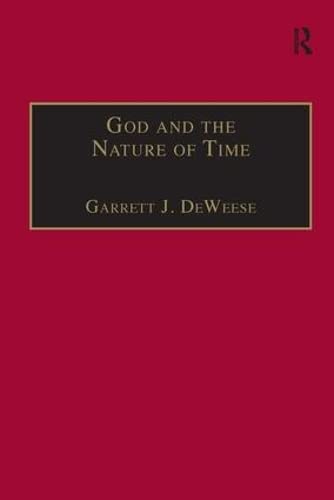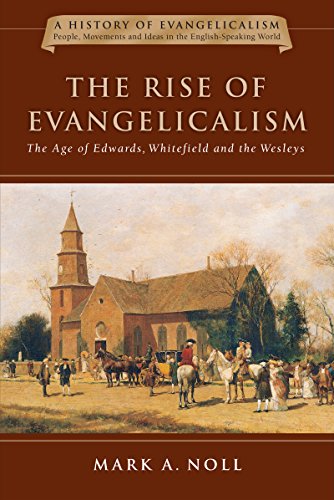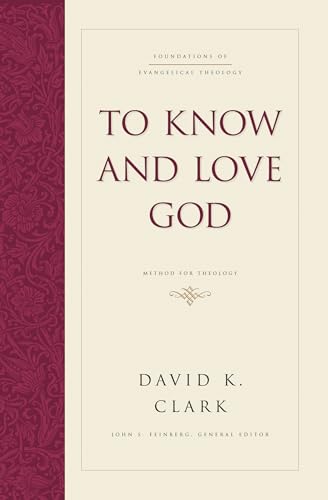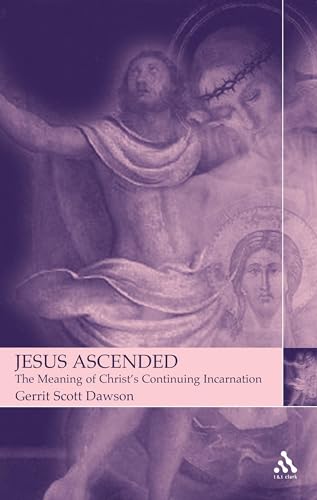GOD AND THE NATURE OF TIME (ASHGATE PHILOSOPHY OF RELIGION SERIES)
Written by Garrett J. DeWeese Reviewed By Philip DuceIf the nature of time is perplexing enough in itself, the perplexity increases for theists who also want to understand God’s relation to time, and, more fundamentally, his temporal mode of being.
Recent studies have engaged with the philosophical theological tradition alongside new interests in the metaphysics and physics of time. Garrett DeWeese (Talbot School of Theology, Biola University) offers a comprehensive, interdisciplinary, ‘synoptic’ view of the issues and conflicts, covering physics and metaphysics, Scripture, the philosophical theological tradition, and contemporary philosophers and theologians. The text includes diagrams, formal logic, (transliterated) Greek and Hebrew, summary boxes and extensive footnotes.
Before ‘plunging headlong’ into the study, DeWeese delineates four kinds of time, common in the technical philosophical literature but not in theological or popular discussions: physical (clock); cosmic (universal, if it exists, or privileged reference frame); personal (psychological); metaphysical (succession of moments [events] through which concrete objects persist).
Part 1 argues that the best available metaphysical theory is one in which time is seen as dynamic, in contrast with the static theory. This leads to a causal theory of time. For DeWeese, the dynamic causal theory fares better than the static in giving acceptable interpretations it contemporary physical theory (special and general relativity, quantum mechanics).
Part 2 turns to philosophical theology beginning with an examination of the Old and New Testament. Biblical exegesis cannot adjudicate between temporalist or atemporalist views of God’s being, as the Scriptures allow for either. This leads into an exploration of the traditional view that the God is timelessly eternal (form Augustine of Aquinas) and contemporary defenders of divine atemporality, bringing ‘telling objections’ against all; then a consideration of mediaeval (Duns Scotus, Ockham, de Molina) and contemporary exponents of a doctrine of divine temporality, which concludes that there are very good reasons to prefer this view.
Part 3 builds on Parts 1 and 2 to develop in much greater detail the concepts of temporality atemporality sempiternity and omnitemporality DeWeese argues that the latter provides the most plausible explanation of God’s temporal mode of being. The final chapter explores the explanatory power of this concept, with particular reference to creation, petitionary prayers, and providence and shows that the losses to traditional theology—the doctrines of divine simplicity and strong immutability—are only losses of certain consequences of Neoplatonist metaphysics. The question of God’s foreknowledge of future contingents is considered to be beyond the scope of the book, but possible solutions are sketched.
This is undoubtedly a challenging and demanding volume. It offers a thorough introduction to key issues and figures in historical and contemporary work on the philosophy of time and time in theology, and will provide a stimulating survey of a lot topic for all who are motivated to grapple with its rather heady complexities in the spirit of DeWeese’s during statement: ‘The Judeo-Christian tradition has uniformly maintained that there is much more to God than is accessible to our reason, or even that is revealed to us. So let me insist that the assertions and conclusions I have reached to offered in a spirit of humility and reverence. In short, … an exercise in “fact seeking understanding,” not one in reason dictating to faith’ (276).
Philip Duce
Leicester






